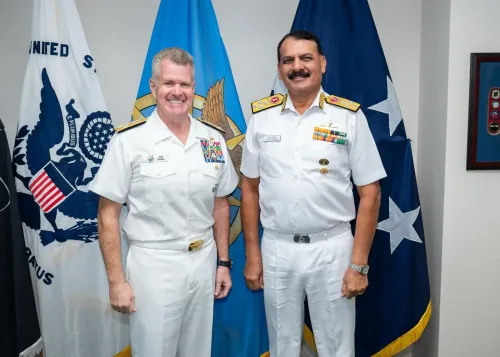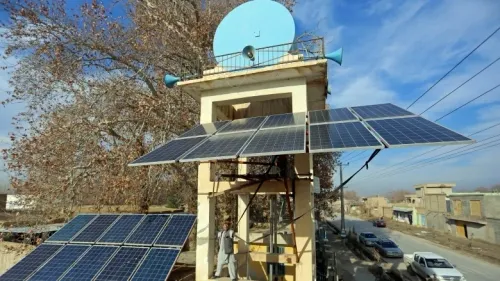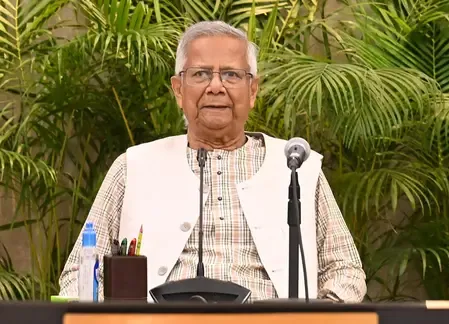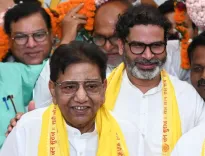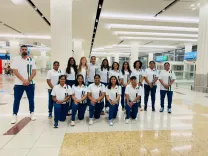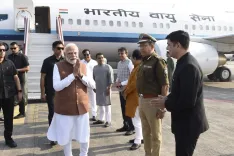Will Any Aggression Against Russia Prompt a Decisive Response?
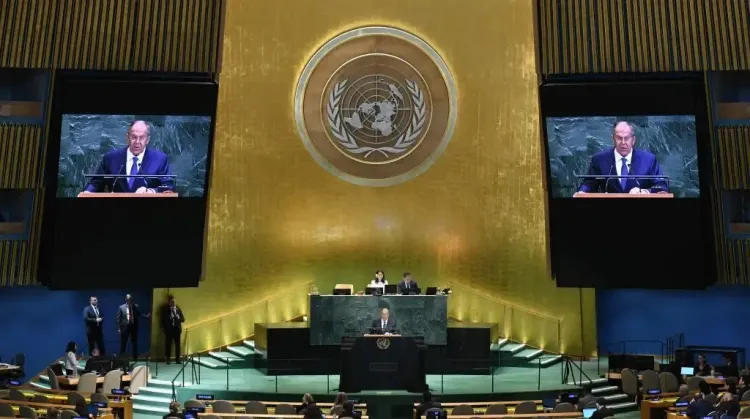
Synopsis
Key Takeaways
- Russia will respond decisively to aggression.
- Open to negotiations regarding Ukraine conflict.
- Importance of securing Russian interests highlighted.
- New START treaty limits nuclear arms.
- Dialogue between US and Russia is encouraged.
United Nations, Sep 28 (NationPress) Any act of aggression directed at Russia "will be met with a decisive response," declared Russian Foreign Minister Sergei Lavrov during his speech at the UN General Assembly's general debate.
He pointed out that Western nations have increasingly threatened military action against Russia, while accusing Moscow of allegedly planning to attack NATO and European Union nations, as reported by Xinhua news agency.
Lavrov emphasized that Russian President Vladimir Putin has consistently denied such provocations, asserting that Russia has never had, nor does it currently possess, such intentions.
Addressing the Russia-Ukraine conflict, Lavrov mentioned that, as reiterated by the Russian president, Russia has always been open to dialogue aimed at resolving the underlying issues of the conflict from the outset.
He stated that Russia's security and essential interests must be effectively safeguarded, and the rights of Russians and Russian-speaking individuals in areas still controlled by Ukraine should be restored and respected. "On this basis, we are ready to discuss security guarantees for Ukraine."
Concerning Russia-US relations, Lavrov expressed hope for the continuation of dialogue between the two countries, particularly after the summit held in Alaska, USA, in August.
He noted that Russia perceives a willingness on the part of the US to not only aid in finding realistic solutions to the Ukraine crisis but also to foster pragmatic cooperation devoid of ideological biases.
Lavrov emphasized that both Russia and the United States bear a unique responsibility for the global situation and for preventing risks that could lead to a new world conflict.
Additionally, Lavrov reiterated a new initiative proposed by Putin: Moscow is willing to adhere to nuclear arms limitations for one year following the expiration of the New Strategic Arms Reduction Treaty (New START) in February 2026, provided the United States reciprocates and avoids actions that could destabilize the current balance of deterrence capabilities.
The New START treaty, which was signed by Russia and the United States in 2010, sets limits on the number of deployed nuclear warheads and strategic delivery systems. It came into effect on February 5, 2011, and was originally set to expire on February 5, 2021, but was officially extended by both nations for another five years until February 2026.


